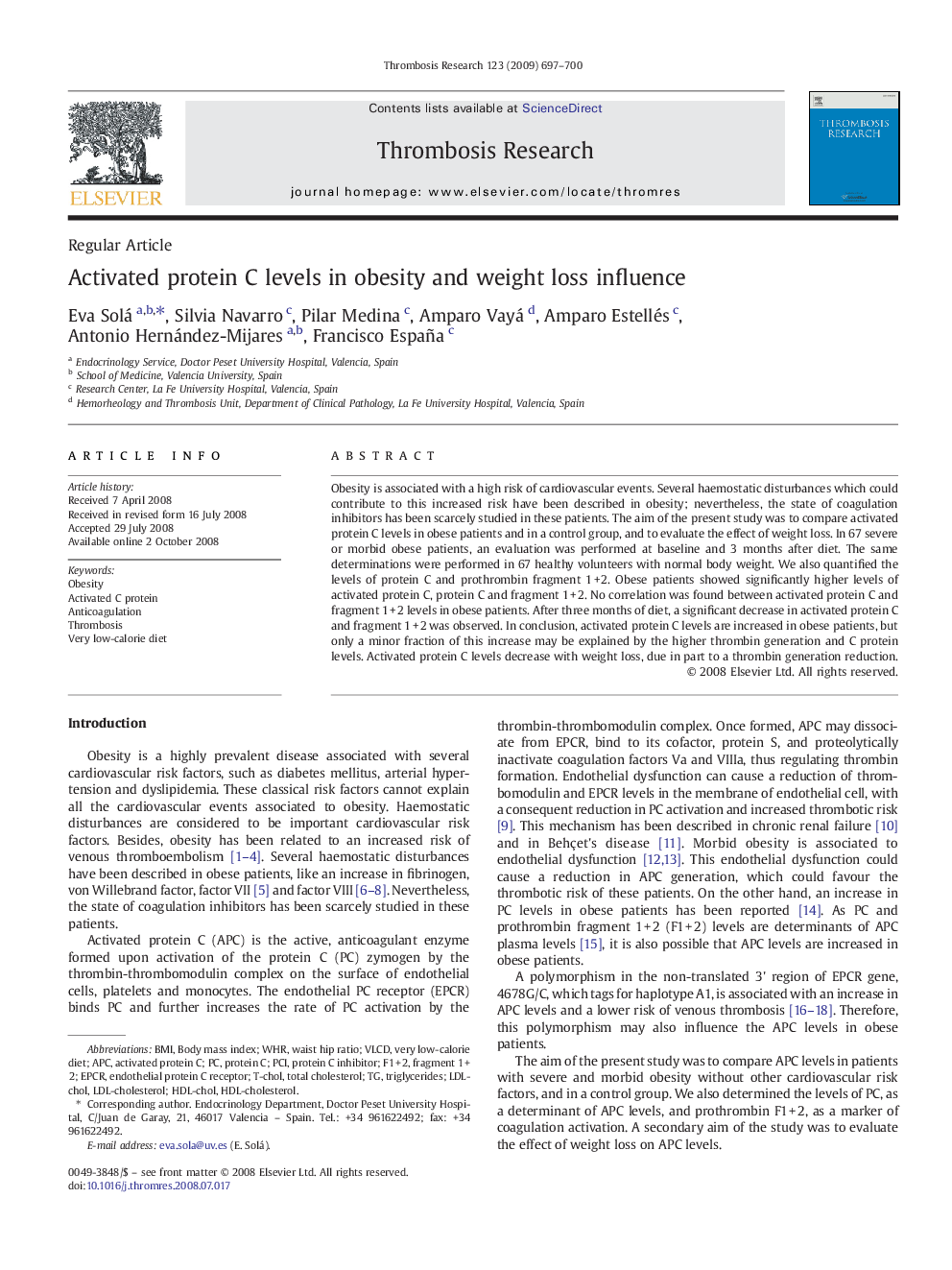| Article ID | Journal | Published Year | Pages | File Type |
|---|---|---|---|---|
| 3028432 | Thrombosis Research | 2009 | 4 Pages |
Obesity is associated with a high risk of cardiovascular events. Several haemostatic disturbances which could contribute to this increased risk have been described in obesity; nevertheless, the state of coagulation inhibitors has been scarcely studied in these patients. The aim of the present study was to compare activated protein C levels in obese patients and in a control group, and to evaluate the effect of weight loss. In 67 severe or morbid obese patients, an evaluation was performed at baseline and 3 months after diet. The same determinations were performed in 67 healthy volunteers with normal body weight. We also quantified the levels of protein C and prothrombin fragment 1 + 2. Obese patients showed significantly higher levels of activated protein C, protein C and fragment 1 + 2. No correlation was found between activated protein C and fragment 1 + 2 levels in obese patients. After three months of diet, a significant decrease in activated protein C and fragment 1 + 2 was observed. In conclusion, activated protein C levels are increased in obese patients, but only a minor fraction of this increase may be explained by the higher thrombin generation and C protein levels. Activated protein C levels decrease with weight loss, due in part to a thrombin generation reduction.
